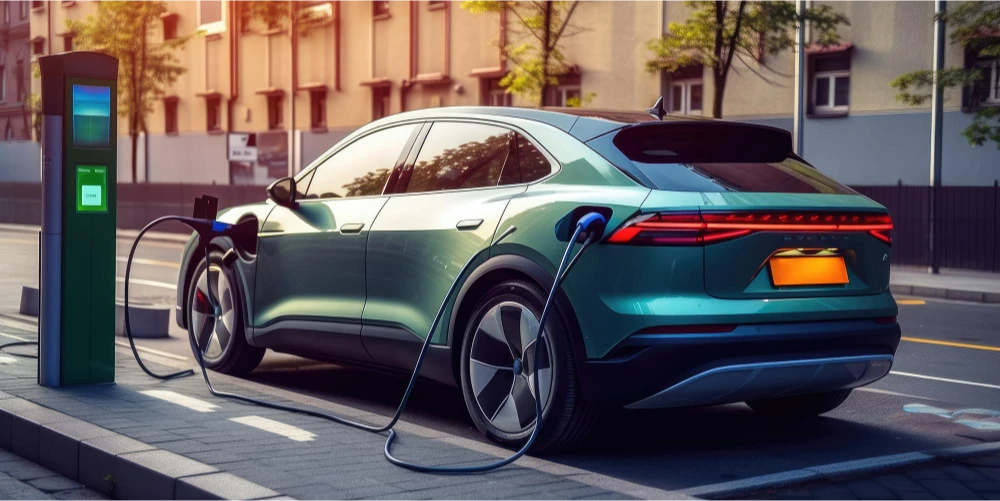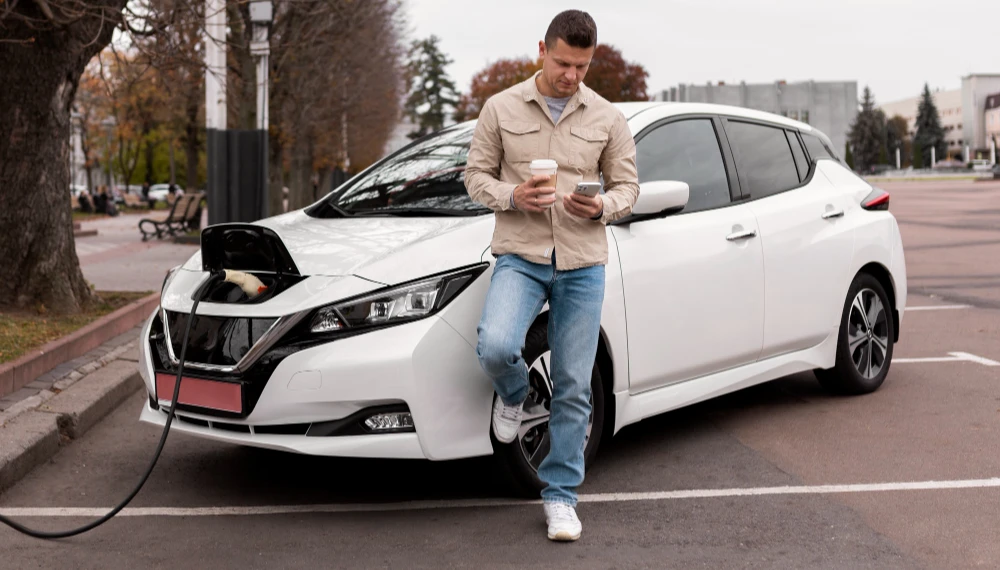With the increasing move towards a more environmentally conscious society, there is a growing trend towards hybrid and EVs.
These revolutionary automobiles have several advantages, such as being environmentally friendly, consuming less fuel, and being less noisy. However, like every technology, hybrid and electric cars have their own issues, too. Many auto repair Houston are now equipped to handle the unique needs of hybrid and electric vehicles. In this blog post, we will discuss some of the issues that hybrid and EV owners are likely to encounter and how they can be solved. We will also discuss why it’s important to regularly keep up with your car’s electrical system service.
If you’re searching for ‘auto repair near me,’ we’re here to help — book your service today.
Working with Hybrid and Electric Vehicles
Hybrid and electric cars represent a significant leap forward in automotive technology, blending efficiency with innovation to create a more sustainable mode of transportation.
Hybrid vehicles combine a traditional internal combustion engine with an electric motor and battery system, allowing them to switch seamlessly between or simultaneously use both power sources to optimize fuel efficiency and reduce emissions.
This dual system enables hybrids to recover energy through regenerative braking and use electric power for low-speed driving, reducing reliance on gasoline.
On the other hand, electric vehicles (EVs) are powered solely by electric motors and batteries, eliminating the need for gasoline entirely.
EVs draw electricity from rechargeable batteries, which can be charged at home or at public charging stations. These batteries power the electric motor, providing instant torque and a smooth, quiet ride.
Battery Degradation
The battery is the heart of any electric or hybrid vehicle since it is the source of power that the vehicle uses to operate.
As time passes, the ability of the battery to retain the charge is reduced, a process referred to as battery degradation. This can lead to its range and performance being reduced.
Causes of Battery Degradation
Several factors contribute to battery degradation, including:
Temperature Extremes:
In the case of batteries, both high and low temperatures have adverse effects on the battery’s health.

Frequent Fast Charging:
Although this method is convenient and efficient, the process of fast charging produces heat that may cause faster battery degradation.
Deep Discharges:
Draining the battery power to a low level often is not recommended because it will reduce the battery’s life.
Tip: It is advisable to avoid charging the battery to full capacity or using it until it is fully drained, as this may reduce its lifespan. However, it is advisable to maintain the battery charge between 20% and 80%.
Charging Infrastructure
The Discomforts of Newly Emerging Technologies
There are several issues known for EV users but one of the most important is the accessibility and stability of charging stations.
Even though there have been advancements in the provision of charging stations, they are not as common as gas stations.
Common Charging Issues
A major concern is that charging stations are hard to come by depending on where one is located. In addition, the connectors and protocols themselves may vary depending on the car or the charging station. If possible, it is recommended to have a home charging point for charging the car at night.
Electric Motors and Drivetrain
Electric motors are generally more reliable and require less maintenance than traditional engines. However, they are not entirely maintenance-free.
Wear and Tear:
Over time, components within the motor can wear out, though this typically takes longer than with ICE engines.
Cooling Systems:
Electric motors generate heat and often have cooling systems that need to be maintained to prevent overheating.
Maintaining Electric Motors
Regular Checkups:
Have your vehicle’s electric motor inspected regularly as part of routine maintenance. This can help catch issues early.
Cooling System Maintenance:
Ensure that the cooling system for the electric motor is functioning correctly. This includes checking coolant levels and replacing coolant as needed.
Regenerative Braking System Problems
Harnessing Energy
Regenerative braking is a key feature of hybrid and electric vehicles, allowing them to recover energy during braking and feed it back into the battery. While beneficial, this system also introduces unique maintenance requirements.
Common Regenerative Braking Issues
Inconsistent Braking Feel: Drivers may notice a different braking feel compared to traditional braking systems, which can take some getting used to.
System Malfunctions:
Problems with the regenerative braking system can reduce its efficiency and potentially lead to safety concerns.
Hybrid and Electric Vehicles Electrical Issues
Hybrid and electric car technology heavily incorporates advanced electrical systems to run effectively. However, these systems have some disadvantages, such as potential weak links in the car that can compromise its performance.
Wiring Problems:
Defective wiring can cause all sorts of electrical problems, ranging from minor breakdowns to severe electrical problems.
Control Module Failures:
The various control modules that are used to control various functions in the vehicle can sometimes develop faults or malfunctions and this affects the performance of the vehicle.
Sensor Malfunctions:
Today’s cars have a large number of sensors that can measure even the temperature of the battery or the speed of the car. If these sensors are not working properly or are giving wrong information, then it could lead to issues with the vehicle’s functionality.
Charging System Failures:
Problems with the charging system of the car can be another reason for the battery not to charge, which will have an impact on the car’s range and functionality.
Software and Electronics
The new generation of hybrid and electric cars contain high levels of software and electronics integrated within the vehicle, managing functions from the drivetrain to the entertainment system.
These systems add functionality to the environment, and at the same time, they act as a reason for problems.
Software Glitches:
The software problem in the vehicle can lead to varying degrees of discomfort, ranging from the failure of the infotainment system to more severe operational problems.
Connectivity Problems:
Issues related to Bluetooth or any other wireless connectivity features, such as pairing with an iPhone or other smartphones.
Tip: One thing that you must never overlook is to make sure that your vehicle’s software is current. Software developers often patch up their creations to correct glitches and optimize the product.
Takeaway
Owning a hybrid or electric vehicle comes with numerous advantages, but it also requires understanding and addressing unique maintenance and repair issues.
By familiarizing yourself with the specific needs of these advanced vehicles and seeking out qualified professionals for maintenance and repairs, you can ensure that your hybrid or electric vehicle remains reliable and efficient for years to come.
To keep your hybrid and electric vehicles fully maintained, you should regularly visit Erics Car Care. To book an appointment today, call us at 713-667-9293.

